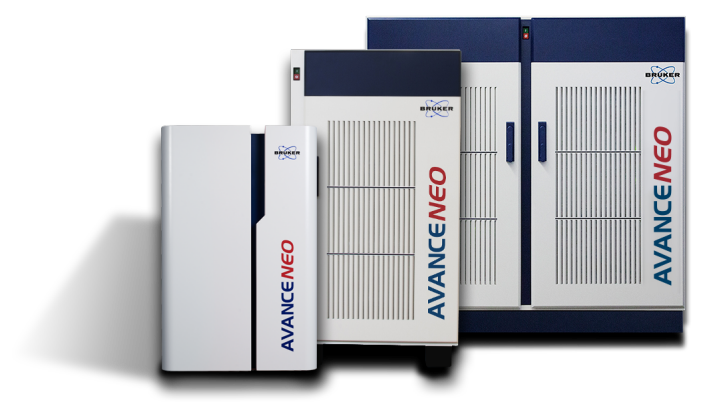Channels
Special Offers & Promotions
NSF-Funded Network for Advanced NMR Orders Two 1.1 GHz NMR Systems to Advance Protein Structure and Dynamics Research

Bruker Corporation has announced that it has received orders for two 1.1 GHz NMR Avance Neo systems from U.S. academic institutions funded by the National Science Foundation (NSF).
Bruker Corporation has announced that it has received orders for two 1.1 GHz NMR Avance Neo systems from U.S. academic institutions funded by the National Science Foundation (NSF). NSF awarded the funds to establish the Network for Advanced NMR (NAN) linking three institutions including the University of Connecticut School of Medicine, the University of Georgia and University of Wisconsin–Madison. NAN is a novel consortium with the goal to establish a distributed network of ultra-high field NMR spectrometers that tackle important and diverse scientific problems and train the next generation of life and materials scientists.
The NAN consortium will operate with a ‘hub and spoke’ model that dynamically adapts to meet evolving scientific and disease biology research needs. The hub at the University of Connecticut will facilitate access to state-of-the-art NMR instrumentation, experimental protocols, and expertise from US researchers. One 1.1 GHz NMR system will be installed at University of Wisconsin - Madison for solid-state NMR research, while the second system will be installed at the University of Georgia for solution-state NMR studies. The NAN consortium offers user support and training through community outreach and an extensive knowledge base of online tutorials, protocols, NMR pulse sequences, and technical materials.
Dr. Jeffrey Hoch, Professor of Molecular Biology and Biophysics at UConn’s School of Medicine
The establishment of a geographically distributed Network for Advanced NMR (NAN) in the U.S. is an innovative means to provide ultra-high field NMR spectrometers for users to tackle important and diverse scientific problems and to educate and train the next generation of scientists and engineers. We are excited and privileged to be a part of the NAN consortium as it brings the power of ultra-high field NMR to U.S. scientists in biological and materials research.
Drs. Katherine Henzler-Wildman and Chad M. Rienstra, Professors of Biochemistry at the University of Wisconsin at Madison
These 1.1 GHz-NMR systems will enable breakthroughs for a diverse set of biological problems, including structure, dynamics and function of systems ranging from organic molecules and proteins to whole cells and tissues. The innovative solid-state NMR instrumentation also will provide powerful tools for chemistry and materials science applications, including amorphous materials, battery components, pharmaceutical formulations, nanomaterials, surface coatings, and catalysts.
Dr. Arthur Edison, Professor of Genetics and Biochemistry at the University of Georgia
One of the best aspects of the NAN consortium will be the increased availability of advanced NMR technology to scientists across the country. Remote users at any institution will be able to bring or send their samples to any NAN institution for data acquisition. There will be targeted outreach programs focused on undergraduate and minority serving institutions that will promote a broadening participation in the NMR research community.
These GHz-class orders from leading U.S. academic institutions are a testament to the expanding need for unique Ultra-High-Field (UHF) NMR scientific research capabilities and confirm Bruker’s commitment to provide enabling technology for pushing the boundaries in proteomics, functional structural biology and advanced materials science.
About Bruker Corporation
Bruker is enabling scientists to make breakthrough discoveries and develop new applications that improve the quality of human life. Bruker’s high performance scientific instruments and high value analytical and diagnostic solutions enable scientists to explore life and materials at molecular, cellular and microscopic levels. In close cooperation with our customers, Bruker is enabling innovation, improved productivity and customer success in life science molecular and cell biology research, in applied and pharma applications, in microscopy and nanoanalysis, as well as in industrial applications. Bruker offers differentiated, high-value life science and diagnostics systems and solutions in preclinical imaging, clinical phenomics research, proteomics and multiomics, spatial and single-cell biology, functional structural and condensate biology, as well as in clinical microbiology and molecular diagnostics.
Media Partners


